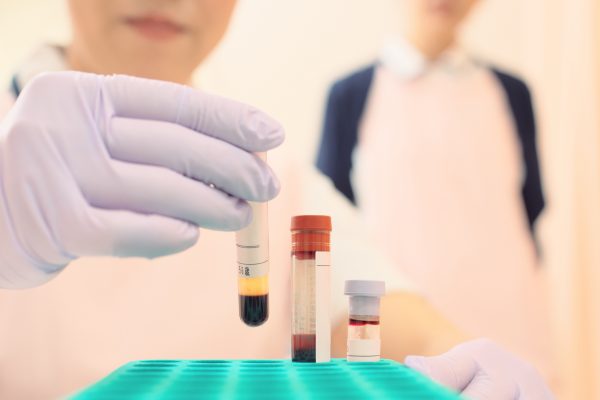
Subcutaneous emicizumab, administered from birth in patients with haemophilia A (HA), holds promise in mitigating the risk of intracranial haemorrhage (ICH) and joint bleeds before irreversible damage occurs. The primary analysis of HAVEN 7, the first clinical trial of emicizumab exclusively focused on infants, showed its efficacy and favourable tolerability profile in this vulnerable population.
Subcutaneous emicizumab offers the prospect of prophylactic treatment for individuals with haemophilia A (HA) from infancy, potentially mitigating the risks associated with bleeding and intracranial haemorrhage (ICH). HAVEN 7 stands as the first clinical trial of emicizumab focused exclusively on infants. Its design aims to assess the efficacy, safety, pharmacokinetics, and pharmacodynamics of emicizumab in infants aged ≤12 months diagnosed with severe HA without factor VIII (FVIII) inhibitors.
The HAVEN 7 trial, a phase IIIb study, enrolled infants aged ≤12 months diagnosed with severe haemophilia A (HA) without FVIII inhibitors. The participants received a maintenance dose of emicizumab at 3 mg/kg every two weeks for a duration of 52 weeks. Following the initial year of treatment, participants continued to receive emicizumab at doses of 1.5 mg/kg once every week, 3 mg/kg once every two weeks, or 6 mg/kg once every four weeks over a 7-year long-term follow-up period within the framework of the study. Efficacy endpoints included annualised bleed rate (ABR), including treated, all, treated spontaneous, and treated joint bleeds. Safety endpoints included adverse events (AEs), thromboembolic events (TEs), thrombotic microangiopathies (TMAs), and immunogenicity (anti-emicizumab antibodies [ADAs] and FVIII inhibitors).
In the primary analysis of HAVEN 7, 55 male participants received emicizumab with a median treatment duration of 100.3 weeks. The median age for informed consent was 4.0 months. Model-based ABR for treated bleeds was 0.4 (95%CI: 0.30-0.63), with 54.5% of participants (n = 30) having zero treated bleeds. Notably, no ICH events occurred, and all 42 treated bleeds in 25 participants (45.5%) were traumatic. AEs related to emicizumab were infrequent (16.4% of participants) and consisted of grade 1 injection-site reactions, none of which necessitated treatment adjustments. There were no deaths, TEs, or TMAs reported. None of the participants tested positive for ADAs, while two participants were confirmed positive for FVIII inhibitors.
In conclusion, this primary analysis demonstrates that emicizumab is effective and well-tolerated in infants with severe haemophilia A without FVIII inhibitors.
Reference